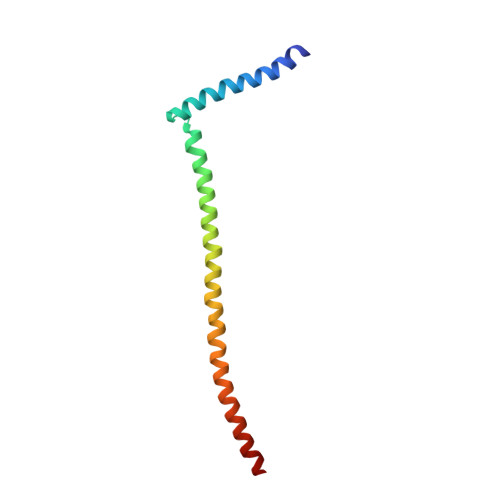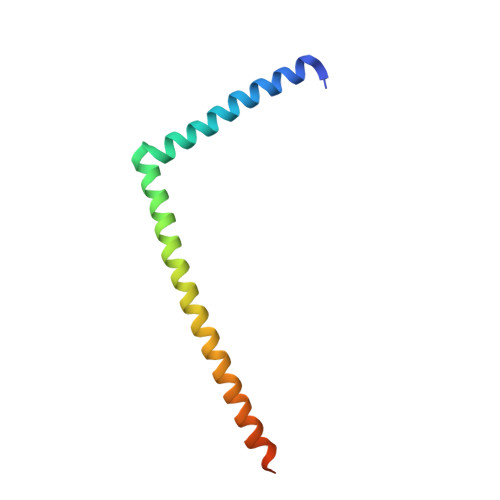Structural and Functional Organization of the Ska Complex, a Key Component of the Kinetochore-Microtubule Interface.
Jeyaprakash, A.A., Santamaria, A., Jayachandran, U., Chan, Y.W., Benda, C., Nigg, E.A., Conti, E.(2012) Mol Cell 46: 274
- PubMed: 22483620
- DOI: https://doi.org/10.1016/j.molcel.2012.03.005
- Primary Citation of Related Structures:
4AJ5 - PubMed Abstract:
The Ska complex is an essential mitotic component required for accurate cell division in human cells. It is composed of three subunits that function together to establish stable kinetochore-microtubule interactions in concert with the Ndc80 network. We show that the structure of the Ska core complex is a W-shaped dimer of coiled coils, formed by intertwined interactions between Ska1, Ska2, and Ska3. The C-terminal domains of Ska1 and Ska3 protrude at each end of the homodimer, bind microtubules in vitro when connected to the central core, and are essential in vivo. Mutations disrupting the central coiled coil or the dimerization interface result in chromosome congression failure followed by cell death. The Ska complex is thus endowed with bipartite and cooperative tubulin-binding properties at the ends of a 350 Å-long molecule. We discuss how this symmetric architecture might complement and stabilize the Ndc80-microtubule attachments with analogies to the yeast Dam1/DASH complex.
- Max-Planck-Institute of Biochemistry, Department of Structural Cell Biology, Martinsried, Germany.
Organizational Affiliation:


















